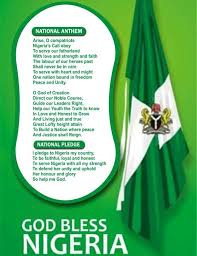Nigeria’s Foremost Sovereign Nation
By Ganiyu Owolabi-Abdullahi
Egbaland, otherwise called Abeokuta (the capital of Ogun State), emerged as a sovereign nation, 4 years before Miss Flora Shaw eventually invented a name for the entire geographical area, now called Nigeria.
This ancient city gained political independence from the British, 67 years ahead of Nigeria; and it existed as an independent nation, 21 years before Nigeria became a single (amalgamated) nation in 1914.
The Egba people started gaining prominence and early exposure to both Western civilization and education, when some freed slaves of Egba origin were returning to their ancestral homeland (Abeokuta), between 1840–1842.
They were therefore, instrumental to the invitation and arrival of Christian missionaries, who were warmly embraced in Egbaland. Thus, the Christian Mission Society (CMS), led by Rev. Henry Townsend was the first mission to arrive in the ancient city of Abeokuta on Wednesday, 4th January, 1843.
Eventually, the British government began to build confidence in the Egba people, for their hospitality and for allowing the foundation of Christianity to be laid on their soil.
As a result, the British initiated a “Treaty of Friendship and Commerce”, which was signed by both parties in 1893, to guarantee full protection to the economic interest of the British, for unhindered commercial activities; most especially, the smooth transportation of various agricultural produce and other commodities, coming from other major Yoruba towns, through Ogun river to Lagos, from where these goods were shipped to Europe.
The Egba-nation practiced a loose confederation system of government, without a written constitution. Thus, the Egba United Government operated with a full-fledged administrative structure and started issuing its own official Gazettes as from 24th March 1904, ten years before Nigeria’s amalgamation; and had her own police force, prisons service, postal service and public works, respectively.
Moreover, as a sovereign nation, Abeokuta had her own indigenous anthem, which was composed and set to music by late Rev. Israel Oludotun Ransome-Kuti (Fela’s father).
It portrays the Olumo rock as a unique symbol of Abeokuta and a well-cherished monument and pride of the Egba people. The Egba anthem is titled – “L’ori oke ati petele, ibe l’agbe bi misi o…” meaning – “on a land, hilly and low; that’s where I was born.”
According to an intelligence report, prepared in 1898 by J. Blair, a British administrative officer, he described the city of Abeokuta as being – “electrically lit, having tarred roads, pipe-borne water and some well-built houses.”
In fact, Nigeria’s first medical school, Abeokuta Experimental Medical School was established in 1861. Both water and electricity schemes were executed in the city in 1910, leading to the establishment of Abeokuta Water Works, which was opened in 1914.
The first government-owned hospital in Nigeria was built in Abeokuta in 1908, to complement the Sacred Heart Hospital, which was built by the Catholics in 1895 as the first standard hospital in Nigeria.
Moreover, the first secondary school to be established in this ancient city, Abeokuta Grammar School, was established in 1908 and the first female secondary school, Abeokuta Baptist Girls High School, was established in 1912.
Therefore, Abeokuta ranked among the few developed cities in Nigeria with the highest number of secondary schools, before Nigeria’s independence in 1960.
The Egba people are popularly called “Omo Lisabi,” meaning – “the children of Lisabi”; who was a very brave and great warrior. He led the Egbas into victories in so many wars, which included the crushing of the Dahomeyans (from the Republic of Benin) as well as the old Oyo Empire warriors.
Read Also:
Under his leadership, Egbaland (Abeokuta) was founded in 1830, with the support of other great warriors like Sodeke, Ogunbona, Ogundipe Alatise, among others. Thus, Lisabi’s name is immortalized in the Egba’s anthem as a great hero and legend.
On September 16th 1914, the British Government abrogated the “Treaty of Friendship and Commerce”, through which Egbaland (Abeokuta) became an independent nation in 1893. Therefore, the Egba-nation is the only territory that enjoyed the special privilege and status of political sovereignty in the annals of Nigeria’s history.
The British government eventually annulled the Egba’s right to self-government after it existed for 21 years, due to series of uprisings and attacks on colonial officials for their high-handedness, resulting from the imposition of frivolous taxes and forced labour on road works without pay, as well as the undue interference in Egba’s socio-economic and political affairs by the colonial governors in Lagos.
As a fall-out of the Egba’s brave revolt against the Europeans, many of the indigenous people, who fled to Lagos for fear of reprisal attack by the British, were settled in an area called Ago-Egba (“Egba quarters”) in Ebute-Metta, on the Lagos-Mainland, when the missionaries and other Europeans, were attacked and forced out of the ancient city.
This incident happened on 13th October, 1867. It was followed by the Kemta Disturbance of 1893; Itori Disturbance of 1901; Ijemo Massacre, which took place between 7th and 9th of August, 1941; and lastly, the Adubi War of 1918, which was triggered by Lord Lugard’s insensitivity, as he was bent on enforcing his experiment of land tax and other forms of direct taxation in Southern Nigeria as he earlier did in Northern Nigeria.
But the Egba people were very resolute as they revolted and fiercely fought the British forces, with causalities on both sides. But at the end, they lost the battle to the superior fire power of the British.
However, having a good understanding that the display of white flags was the white man’s language of surrender in war, the Egba people massively hoisted white flags on the roofs of their houses and on the pathways, to their villages.
As the colonial office in London realized that the Egba people had become a big threat to their interest, the sovereignty of Egba United Government was immediately abrogated and the ancient city was eventually reduced to a native authority, which is now the present location of Abeokuta-South Local Government Area of Ogun State. Thus, it is the oldest Local Government Area in Nigeria.
Without doubt, the history of journalism, printing and publishing in Nigeria began in the ancient city of Abeokuta, when the maiden edition of “Iwe Irohin Fun Awon Egba Ati Yoruba” (a newspaper for the Egba and Yoruba people) was published on December 3rd 1859.
Therefore, Iwe Irohin became the first newspaper to be published in a native language in Nigeria and the whole of West Africa. The English edition of the newspaper (a bi-lingual edition) was subsequently published on 28th March 1860.
As the principal of Abeokuta Grammar School (1932-50), Fela’s dad, Rev. Israel Oludotun Ransome-Kuti, abolished the use of the British ‘imposed’ anthem, titled – “God Save The Queen” in his school and replaced it with the Egba anthem, titled – “Abeokuta, Ilu Egba” (“Abeokuta, a great city of the Egba people”).
He also composed another anthem for the entire Yoruba-nation, titled – “Ise agbe, n’ise ile wa…”, extolling farming as Nigeria’s economic lynch pin.
Moreover, he championed the agitation for the formation of the Nigerian Union of Teachers (NUT) in 1931, along with other nationalists, like Sir Abubakar Tafawa Balewa. Thus, both of them emerged as the first national president and vice-president of NUT, respectively.
Comrade Ganiyu Owolabi-Abdullahi writes from Abudu’s Court, Isale-Igbein, Abeokuta, Ogun State (08055048925)
















